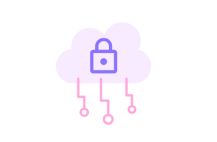
A recent report published by Eurofound highlights the advances that the integration of blockchain technology (but also other technologies) could offer in the field of social protection. It could save money and increase the security of transactions.
Published by the European Foundation for the Improvement of Living and Working Conditions (Eurofound), this report examines the use of digital technologies in social services and digital promotion policies. It draws up an inventory of possible prospects, but also of the obstacles to be overcome in order to integrate these new solutions, including blockchain.
The aim is to support the European Union’s desire to adapt its services to the digital age. “As with the service sector, the use of blockchain technology is in its infancy in health and social services, where it has been used to pay out cash benefits and to control contributions from retirement”, specify the authors of this report.
Pension funds, In particular, recall the decentralized nature of the blockchain, thus making it possible to manage transactions in complete security without the need to resort to a third party. It is also about the transparency and the principle of trust that this would allow obtaining in the public sector.
Blockchain technology has already been used in the field of social protection. This is the case for pension management in the Netherlands, for example. It is an infrastructure allowing several actors (tax authorities, companies, and employees) to monitor the payments made by individuals into pension funds.
In the UK, the deputy director of platform management for the Department for Work and Pensions (DWP) said last year that his services were exploring the use of blockchain to optimize their payments service. and make it faster. The Finnish Immigration Service partnered with Helsinki-based start-up MONI in 2015, in a pilot project that offered refugees a prepaid Mastercard linked to their digital identity.
Blockchain technology, deployed via Ethereum, keeps track of financial transactions made with the card. This makes it easier for refugees to find a job and receive money through their work.
It also allows them to pay their bills electronically, which ultimately speeds up their settlement process in Finland.
A blockchain to monitor the pandemic: Regarding health, the Public Health Blockchain Consortium (PHBC) recently announced the launch of a blockchain aimed at verifying that communities and workplaces are free of the coronavirus COVID-19, as well as other viruses, bacteria, and fungi. high risk.
This consortium, based in Switzerland, is made up of health authorities, universities, healthcare providers, and innovators who aim to collect and store anonymous health data on the blockchain.
The data would be stored and updated in real-time using the blockchain. The information would be retrieved from surveillance service providers who use a combination of technologies including artificial intelligence (AI) and geolocation systems.
Conducted before the covid-19 pandemic, this Eurofound study will certainly be read with even more attention by European decision-makers in order to optimize the health sector.
